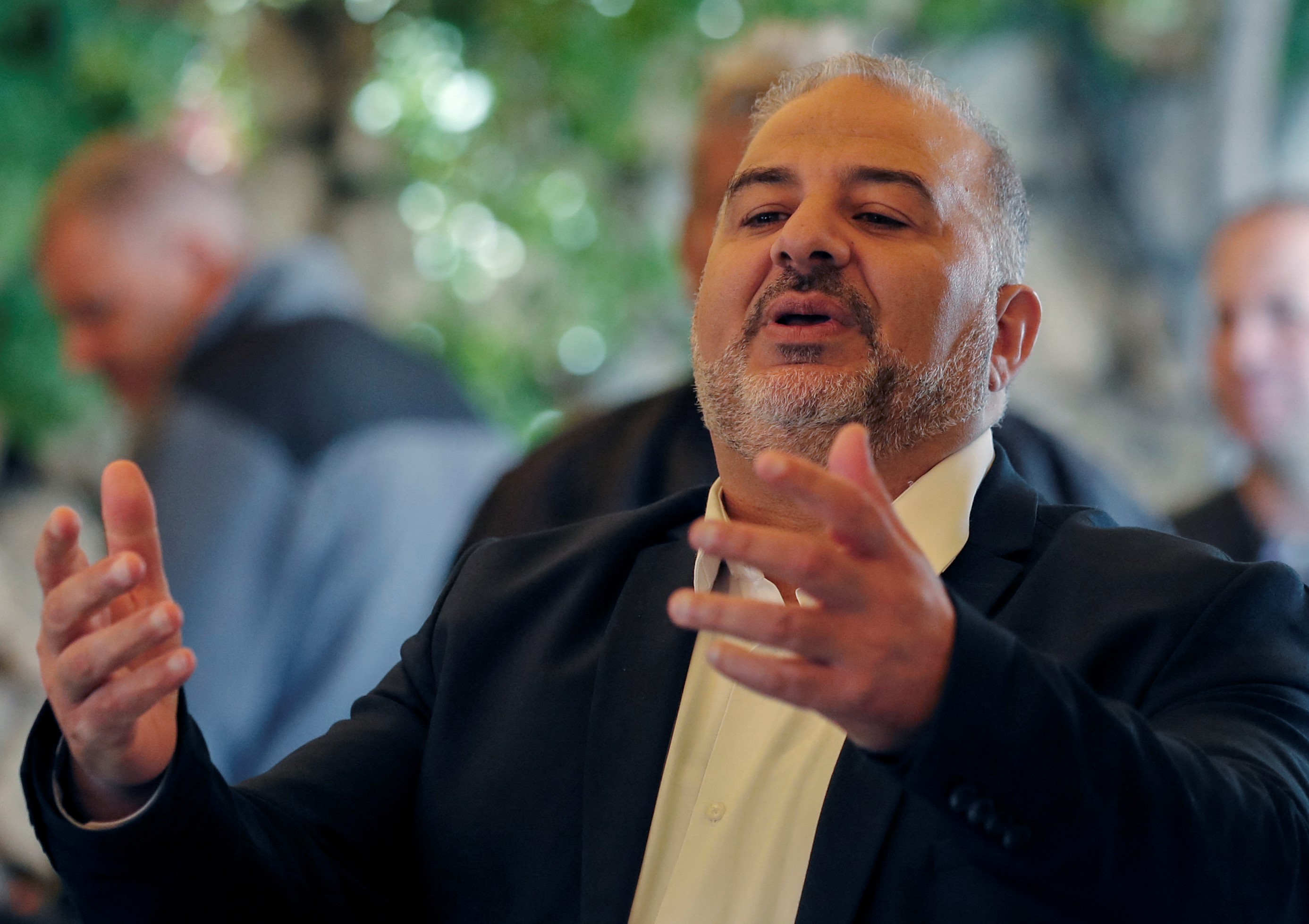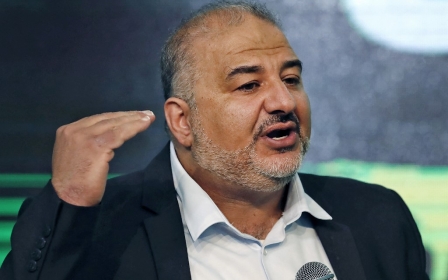Israel election: The far-right is triumphant. The only obstacle left is Netanyahu

As 13 parties struggle with Israel's complex post-election maths, seeking alliances that can assure them power, the most significant outcome of the vote is easily missed. The religious fundamentalists and settler parties - Israel's far right – won an unprecedented and clear-cut victory last week.
Even on the most cautious assessment, these parties together hold 72 seats in the 120-member parliament. For more than a decade they have underwritten Benjamin Netanyahu's uninterrupted rule. That is why all the current talk in Israel and the western media about two equal camps, right and left, pitted against each other – implacably hostile and unable to build a majority – is patent nonsense.
The far right has a large majority. It could easily form a government – if it wasn't mired in a now seemingly permanent crisis over the figure of Netanyahu.
Both the far right and the 'centrists' subscribe to versions of the settler colonial ideology of Zionism
Standing against the far right are what are loosely termed the "centrists," equally committed to the takeover of swaths of the occupied territories, if in their case more by stealth.
There are two parties on the "centre-right" – Yesh Atid and Blue and White – that won between them 25 seats. The "centre-left," represented by the Labor party and Meretz, still struggling to maintain the pretence that they comprise a "peace camp," secured 13 seats. A final 10 seats went to the various parties representing Israel's large minority of Palestinian citizens.
Both the far right and the "centrists" subscribe to versions of the settler-colonial ideology of Zionism. To outsiders, the similarities between the two camps can sometimes look stronger than the differences. Ultimately, with the possible exception of Meretz, both want the Palestinians subjugated and removed.
The "centrists" may best be understood as the apologetic wing of Zionism. They worry about Israel's image abroad. And that means they have, at least ostensibly, emphasised dividing territory between Jews and Palestinians – as the Oslo accords proposed – rather than visibly dividing rights. The centrists' great fear is that they will be seen as presiding over a single apartheid state.
Jewish supremacy
The 60 percent of the parliament now in the hands of extreme religious and settler parties takes the opposite view. They prefer to divide rights – to create an explicit apartheid system – if they can thereby avoid dividing the territory. They want all of the region, and ideally only for Jews.
The far right explicitly views Palestinians, the native people whose homeland the Zionist movement has been colonising for the past 100 years, as interlopers or unwelcome guests
They care little what others think. All subscribe to an ideology of Jewish supremacy, even if they differ on whether "Jewish" is defined in religious or ethnic-nationalist terms. In 2018 Netanyahu's government began the process of legislating this world view through the Jewish Nation State Law.
The far right explicitly views Palestinians, the native people whose homeland the European-led Zionist movement has been colonising for the past 100 years, as interlopers or unwelcome guests.
Unlike the centrists, the far right places little weight on the distinction between Palestinians under occupation and the fifth of Israel's population who are Palestinian and have degraded citizenship. All Palestinians, wherever they live and whatever their status, are seen as an enemy that needs to be subdued.
Allying with centrists
So why, given the far right's incontestable triumph last week, are the media filled with analyses about Israel's continuing political impasse and the likelihood of a fifth election in a few months' time?
Why, if a clear majority of legislators are unapologetic Jewish supremacists, has Netanyahu kept courting centrists to stay in power – as he did after the last election, when he ensnared battle-hardened general Benny Gantz into his coalition? And why after this election is he reported to be reaching out for the first time to a Palestinian party for support?
Part of the answer lies in a deep disagreement within the far right, between religious fundamentalists and its more secular components, on what "Jewish rule" means. Both sides focus on the supremacy of Jews over Palestinians and refuse to make a meaningful distinction between the occupied territories and Israel. But they have entirely different conceptions of Jewish sovereignty. One faction thinks Jews should take their orders from God, while the other looks to a Jewish state.
Further, they disagree on who counts as a Jew.
It is hard, for example, for Avigdor Lieberman, the leader of Yisrael Beiteinu, to break bread with the extremist rabbis of Shas and United Torah Judaism, when those rabbis don't regard many of his supporters – immigrants from the former Soviet Union – as real Jews. To them, "Russians" no more belong to the Jewish collective than Palestinians.
Oppressive shadow
But an even bigger obstacle is to be found in the figure of Netanyahu himself, Israel's longest-serving prime minister.
The far right is largely unperturbed by Netanyahu's trial on multiple corruption charges. Israel's short history is full of major crimes overseen by its leaders: wars of aggression, forcible population transfer, executions and looting, land theft and settlement building. Netanyahu's alleged fraud and acceptance of bribes seem trivial in comparison.
The far right's problem with Netanyahu is more complex.
He has been presiding over this bloc, relatively unchallenged, since the early 1990s. He has become by far the most skilled, experienced and charismatic politician in Israel. And for that reason, no other far right leader has been able to emerge from under his oppressive shadow.
He may be King Bibi – his nickname – but the far right's more ambitious princes are getting increasingly restless. They are eager to fill his shoes. Their knives are out. Gideon Saar, his Likud protege, created a party, New Hope, to run in last week's election precisely in the hope of ousting his old boss. But equally, Netanyahu is so wily and experienced that he keeps outsmarting his rivals. He has managed to avoid any of his opponent's lethal lunges by exploiting the far right's weaknesses.
Netanyahu has employed a twofold strategy. Despite perceptions abroad, he is actually one of the more moderate figures in the extreme religious and settler bloc. He is closer ideologically to Benny Gantz of Blue and White than he is either to the rabbis who dictate the policies of the religious parties or to the settler extremists – or even to the bulk of his own Likud party.
Netanyahu has become a bogeyman abroad chiefly because he is so adept at harnessing the energy of the religious and settler parties and mobilising it to his own political and personal advantage. Israeli society grows ever more extreme because Netanyahu has for decades provided an aura of respectability, statesmanship and intellectual heft to the rhetoric surrounding the far right's most noxious positions.
In this election he even brokered a deal helping to bring Jewish Power – Israel's most fascistic party – into parliament. If he has to, he will welcome them into the government he hopes to build.
Wearing thin
But Netanyahu's relative moderation – by Israel's standards – means that he has, at least until recently, preferred to include centrists in his coalitions. That has helped to curb the excesses of a purely far right government that might antagonise the Europeans and embarrass Washington. And equally, it has kept the extreme right divided and dependent on him, as he plays its parties off against the centrists.
Netanyahu has for decades provided an aura of respectability, statesmanship and intellectual heft to the rhetoric surrounding the far right’s most noxious positions
If the princes of the settlements push him too hard, he can always tempt in a Yair Lapid (Yesh Atid), or a Gantz (Blue and White), or an Ehud Barak (Labor) to replace them.
He has been loyal to no one but himself.
Now that strategy is wearing thin. His corruption trial and the resulting campaign he has waged to weaken Israel’s legal and judicial systems to keep himself out of jail has left a sour taste with the centrists. They are now much warier of allying with him.
After last year's election, Gantz only dared join a Netanyahu government after citing exceptional grounds: the urgent need to fight the pandemic in an emergency government. Even so, he destroyed his party in the process. Now, it seems, only a rookie, conservative Islamist leader like Mansour Abbas may be willing to fall for Netanyahu's trickery.
Sensing Netanyahu's weakness and his loss of alternative partners, parts of the far right have grown unruly and fractious.
Netanyahu has kept the extreme religious parties on board – but at a steep cost. He has given them what they demand above all else: autonomy for their community. That is why Israeli police have turned a blind eye throughout the pandemic as the ultra-Orthodox have refused to close their schools during lockdowns and turned out in enormous numbers – usually without masks – for rabbis' funerals.
But Netanyahu's endless indulgence of the ultra-Orthodox has served only to alienate the more secular parts of the far right.
Betrayed on annexation
Worse, as Netanyahu has focused his energies on ways to draw attention away from his corruption trial, he has chosen to play fast and loose with the far right's political and emotional priorities – most especially on annexation. In the recent back-to-back election campaigns, he has made increasingly earnest promises to formally annex swaths of the West Bank.
But he has repeatedly failed to make good on his pledge.
There is a growing exasperation with Netanyahu. Sections of the far right want someone new, someone invested in their cause not in his own political and personal manoeuvrings
The betrayal hit hardest after the election a year ago. With then-president Donald Trump's blessing, Netanyahu vowed to quickly begin annexation of large sections of the West Bank. But in the end Netanyahu ducked out, preferring to sign a "peace deal" with Gulf states on the confected condition that annexation be delayed.
The move clearly indicated that, if it aided his political survival, Netanyahu would placate foreign capitals – behaviour reminiscent of the centrists – rather than advance the core goals of the far right. As a result, there is a growing exasperation with Netanyahu. Sections of the far right want someone new, someone invested in their cause - not in his own political and personal manoeuvrings.
In the fashion of Middle Eastern dictators, Netanyahu has groomed no successor. He has cultivated a learnt helplessness in his own ideological camp, and the princes of the settlements are fearful of how they will cope without him. He has been their nursemaid for too long.
But like rebellious teenagers, they want a taste of freedom - and to wreak more havoc than Netanyahu has ever allowed.
They hope to break free of the political centre of gravity he has engineered for himself. If they finally manage it, we may yet look back on the Netanyahu era as a time of relative moderation and calm.
The views expressed in this article belong to the author and do not necessarily reflect the editorial policy of Middle East Eye.
This article is available in French on Middle East Eye French edition.
Middle East Eye propose une couverture et une analyse indépendantes et incomparables du Moyen-Orient, de l’Afrique du Nord et d’autres régions du monde. Pour en savoir plus sur la reprise de ce contenu et les frais qui s’appliquent, veuillez remplir ce formulaire [en anglais]. Pour en savoir plus sur MEE, cliquez ici [en anglais].








